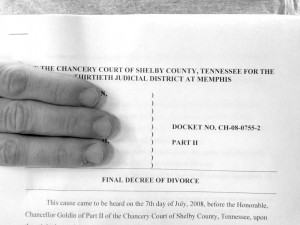Filing For A Divorce In PA

Starting the Process
When you file for divorce in Pennsylvania, one spouse will be the “Plaintiff” and one will be the “Defendant.” The Plaintiff is the one who is asking for the divorce, and must fill out a Complaint in Divorce form and file it at the nearest courthouse to his or her residence. This form will give the names of both spouses and state what type of divorce the plaintiff is seeking. If any additional things are sought, such as alimony, property, or child support, this must be included on the document, as well. A copy of the document must be served on the defendant. This can be done by certified mail, or by having the sheriff bring the document to the defendant. Remember, you can only file for divorce in Pennsylvania if one of the spouses has been living within the state for at least the most recent six months prior to filing.
The Four Types of Divorce in Pennsylvania
Before you file for divorce, you should know the best type for your situation. Here are the four types of divorce available in PA.
Mutual Consent–This is a no-fault divorce, meaning the plaintiff does not have to prove it was the defendant’s fault that the marriage was damaged. Over 90 percent of divorces filed in PA are mutual consent divorces. This simply means that both parties agree to the divorce. Once the defendant has been served, both spouses must wait 90 days, and then can come to court together to sign an affidavit agreeing to the divorce. A judge can then grant the divorce at that time. Any monetary support or property must be asked for prior to going before the judge to finalize the divorce.

Two-year Separation Divorce–This is another type of no-fault divorce. It is used when the defendant does not agree to the divorce. In this case, the plaintiff must wait until both parties have been separated for two years before proceeding with the divorce. After two years, the plaintiff can go to court and sign a document stating the parties have been separated for two years and the marriage is over. This document must be served on the defendant. If the defendant does not respond, the divorce is granted. If the defendant does respond and denies being separated or denies that the marriage is broken, then the two parties must go to court and have a judge decide whether or not to grant the divorce.
Mental Hospital Divorce–The plaintiff can automatically get a divorce if the defendant has been in a mental hospital for at least a year and a half and is expected to be there for at least another year and a half.
Fault Divorce–This is the oldest type of divorce, and once was the only type of divorce available. It’s rare that anyone uses it, but it sometimes comes up even today. In a fault divorce, the plaintiff must prove that the defendant did something wrong to damage the marriage, such as committing adultery or abandoned the plaintiff. Mistreatment of the plaintiff by the defendant is also grounds for a fault divorce if the plaintiff can prove it. Most people go for no-fault divorce, because it is very expensive and time-consuming to go through a fault divorce. Both parties must have attorneys, must produce evidence, and will have to pay large court fees. Plus, there is a chance the judge will decide the defendant was not at fault and will thus not grant the divorce.
How Long Does it Take for a Divorce to Be Granted in PA?
- In a mutual consent divorce, the divorce can be granted in 90 days.
- The two-year separation divorce takes two years to be finalized.
- The mental hospital divorce can be granted right away with proper documentation.
- A fault divorce has no particular time set on it for granting the divorce. The divorce process in a fault divorce is a lot like a criminal trial, and can take weeks, months, or even years to go through, if it’s granted at all.
Alimony, Marital Asset Division, and Child Support in Pennsylvania Divorces
Pennsylvania grants alimony to both wives and husbands under certain circumstances. It is impossible to tell beforehand just how much (if any) alimony will be granted, and for how long, because so many different factors are considered in whether or not to grant it and in determining an amount. Here are some of the factors that are considered by PA judges when deciding whether to grant alimony and in what amount:
- The marital conduct or fault of either party
- The length of the marriage
- All sources of income from each spouse
- The earning capacities of each spouse
- The standard of living for each spouse established in the marriage
- The age of each spouse
- The physical and emotional health of each spouse
- Contributions to the marriage in both financial and non-financial ways (such as housekeeping and raising children)
These are the same factors that are considered by a judge when dividing up marital assets, as well. If you are asking for alimony or property, there can be a lengthy wait while a judge looks at all of these factors very carefully. If you are asking for child support, that is a bit more simple. The judge will base the amount of child support awarded on the combined incomes of both spouses. However, if child custody first has to be determined, there could be another wait while the judge decides if one spouse will get sole or primary custody, or if custody will be shared between spouses. Only once custody is determined can a child support award be decided.
If you feel you would like to discuss your divorce options further, feel free to call the offices of Beier Law today.
